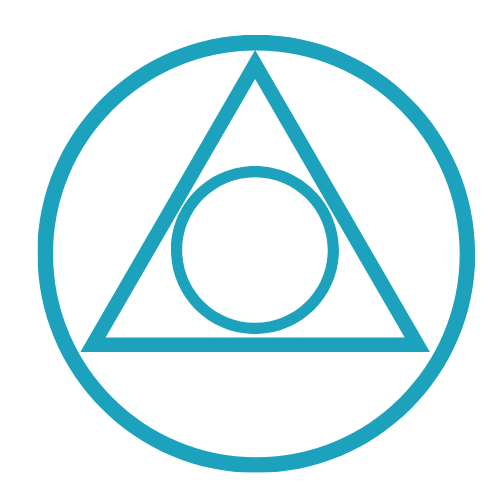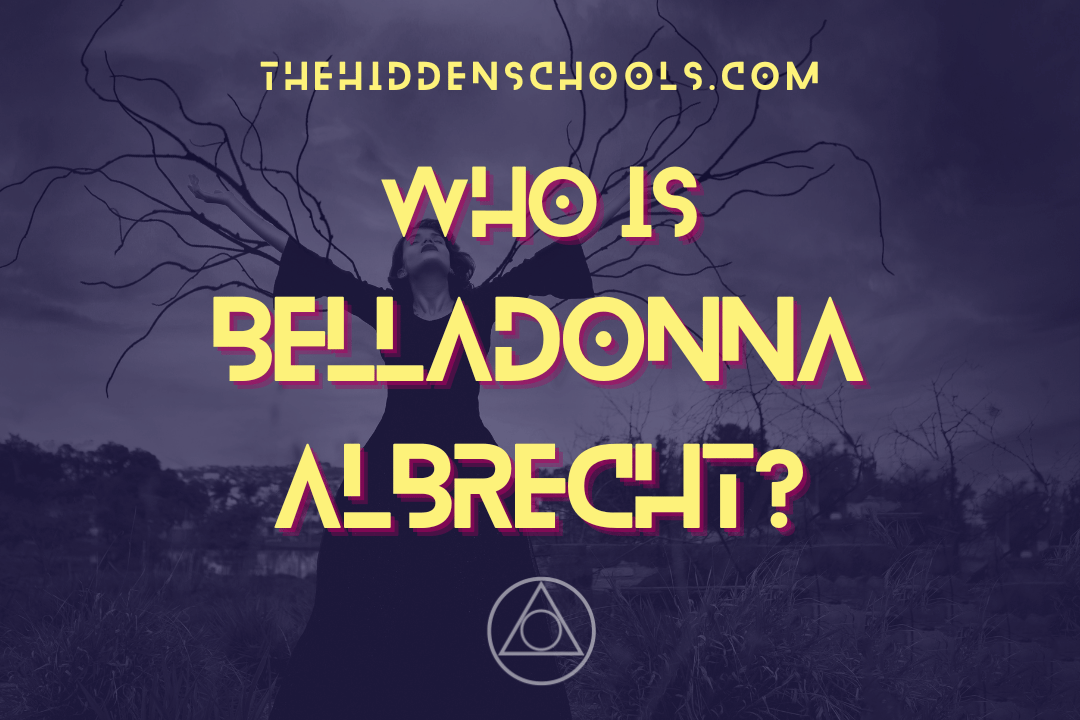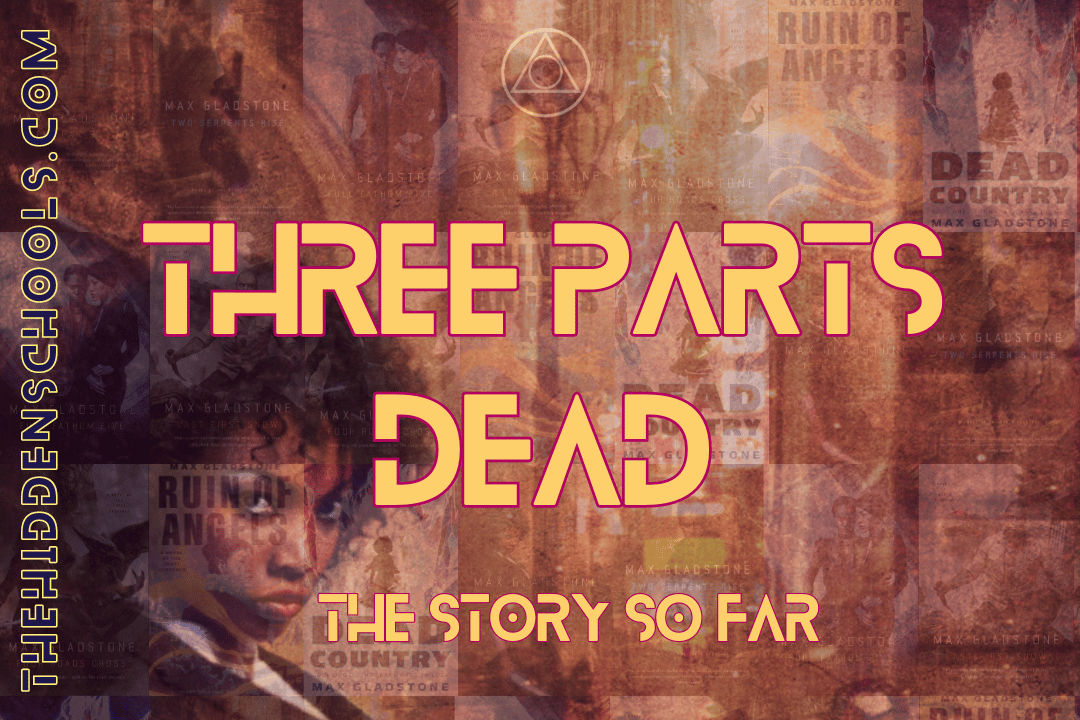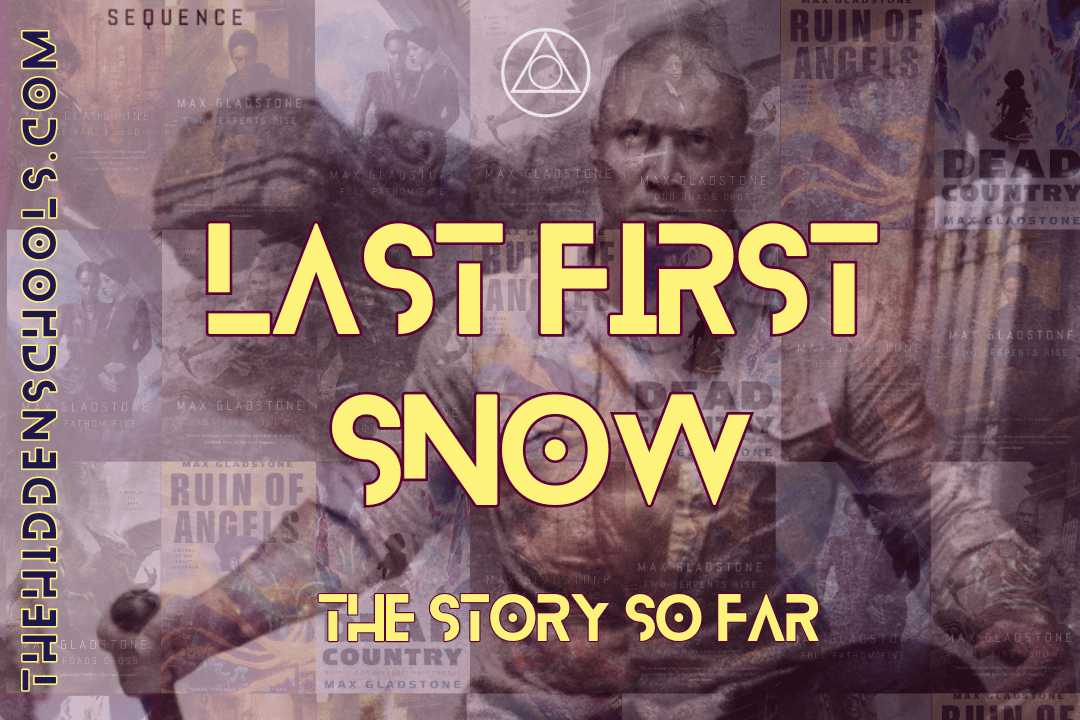Who is Alexander Denovo and what does he want?
The next space spider article was getting a tad unwieldy, so we’ve decided to break out this section into its own article. Who tf is Alexander Denovo, and what does he want? Why is he important to the story?
Spoilers for Three Parts Dead, Four Roads Cross, Dead Country
Who is Alexander Denovo and what does he want?
“I remember working in Professor Denovo’s lab. Really tremendous fascinating stuff, vivisecting gods, experimental faith dynamics.”
Simply put: Alexander Denovo was a Craftsman who wanted to become a god.
Yes, ‘was’; the present tense in the title there is a little misleading. Alexander Denovo was killed at the end of Three Parts Dead, and Tara herself ensured he could not be resurrected in Four Roads Cross. I have a feeling we may see him in some form before the end of the Craft Wars, but I’d be surprised if he actually came back to life (or deathless un-life). It would feel a bit cheap, and I don’t think that’s Gladstone’s style.
Despite his death early in the series, however, Denovo looms large over the story as a whole and specifically Tara’s arc - and, as Tara is the protagonist of the Craft Wars trilogy, it always seemed likely that his influence would return in some shape or form.
We don’t know much about Denovo’s early life, and to be honest I care little to learn more. We don’t need to know his motivation and what shaped him: he represents a particular breed of powerful men who abuse those less privileged than themselves, particularly women.
We do know that he showed an aptitude for the Craft at a young age, but that his family weren’t Craftsfolk. Tara tells us in Three Parts Dead (page 204) that his family were wealthy watchmakers, but ignorant to the Craft. Elayne says she met him as a child while he was on his way to the Academies, when she still lived in her village (Three Parts Dead, 115). He says he was one of the youngest to fight in the God Wars (Three Parts Dead, 316) - although we don’t know if he fought alongside Elayne, or if they didn’t meet as adults until Alt Coulumb. We hear in Last First Snow of her own brutality, and know she was war buddies with Kopil, but if Denovo fought alongside her neither of them mention it. We do, however, know that Denovo and Elayne ended up in Alt Coulumb together after the Wars to build Justice from Seril’s corpse.
Now here’s where it starts to get relevant to the skazzerai.
No powerful Craftswoman or Craftsman becomes that way because of kindness, and, as established, Denovo craves power for little more than power’s sake. In his younger years, Denovo developed a talent for what is essentially mind control; we learn in Three Parts Dead that he initially used Elayne Kevarian as a guinea pig , and when she shook off his influence she had him blacklisted from private practice of the Craft. Nonetheless, he made his way into academia at the Hidden Schools, where he founded a journal and a lab.
The lab, at the Hidden Schools itself, sucked in students including Tara herself. We read in Dead Country that:
“Even after all these years she heard a thread of awe in her voice when she spoke his name. He’d woven that thread into her, and sometimes she thought she’d spend her whole career picking it out.
“He was … He was a genius. I worked hard to get into his lab, and when he doubted me I worked harder to prove my worth. And he used me. He used all his students. He took over our minds. He drained our souls, used our dreams for his projects, bent our spirits through his will. He worked us like puppets until we broke. And then he threw us away.”
This isn’t, of course, the first reference to Tara’s experience in the lab but it’s a fitting one for this article.
In Three Parts Dead, Denovo hints at what might be coming from the stars (though to be frank I doubt Gladstone had fully conceptualised the skazzerai idea at this point). In Four Roads Cross we hear from his associate Madeline Ramp that:
“The world is breaking. The Wars made cracks, and we have broken it further. Our work turns soil to ash and water to poison. Even as we push ourselves to the brink of doom, beings of a size you cannot comprehend watch us with many eyes across vast gulfs of space.”
Whether it’s a retcon or an idea that was there from moment one, it’s clear that Denovo knew of the skazzerai and this knowledge was somehow involved in his plans to attain godhood and stride our among the stars.
What was Denovo researching?
I’m going to show my weakness here, and say that I don’t tend to follow (or understand) the intricacies of different Craft disciplines, nor how they could relate to real world issues. The Craft is part law, part philosophy, part quantum physics, none of which are in my wheelhouse. But I’m going to do my best here to break down what we do know about Denovo’s research.
“He ran a journal—a working group, old Craftspeople who schemed about godhacking, mindsculpting, soul work. My last boss [Elayne Kevarian] called it a demented knitted circle.”
Elayne’s delightfully phrased description of Denovo’s journal, The Forum on the Will and Its Transformations, makes it sound like what he was up to was niche, perhaps fringe research. However, we know from earlier books that Denovo is an incredibly well-respected academic, and he’s shielded from the consequences of his abuse because of this respect:
“Denovo’s lab, they said, was one of the greatest centre of learning in the world. The lab advanced the knowledge of all Craftsmen everywhere. They questioned my judgement, questioned my priorities, as he sucked his students dry and grew fat on the power he stole from them. I tried to quit, but he didn’t let me. Tried to strike him down, but with his lab behind him, he was too strong.”
“I freed myself. I set his lab on fire. I broke his hold over the other students. I denounced him before the board. But they already knew. They knew, and let him work, for decades. They guided students from influential families away from his lab–but not even those kids were completely safe. The board protected him. They didn’t protect us.
“You have to understand that these people I’m talking about aren’t outliers. They’re not stuck on the sidelines. They’re giants in their field, influential faculty at the most selective, most elite Craftwork school in the world. Professor Denovo’s gone now, but the people who protected him and worked with him are still right there.”
His ideas may be extreme, but they aren’t secret. They’re supported, funded, and covered up by other powerful people.
But what did Denovo and his “demented knitting circle” actually research?
Tara mentions godhacking, mindsculpting and soul work, so let’s take each of those one by one.
Godhacking implies hacking the systems that are gods. We hear again and again that gods are network systems. Now, I’m no techie, but I take that as being analogous to computer systems. As you can hack a computer system, you can hack a god - if you have the tools. This is perhaps related to how he used Seril to create Justice back in Alt Coloumb, or at least, an early form of it. It could also - or additionally? - relate to what Daphne describes as “vivisecting gods” (see quote at the top of the article).
Mindsculpting sounds like everything Denovo was up to in his lab with his student victims - students like Tara, and her friend Daphne. More subtle than mind control, as much art as it is science, but still taking over a person’s free will.
Soul work could mean all sorts of things. Soul is currency in the Domain, and the means through which both the Craft and Applied Theology work. This therefore seems a rather general term compared to the other two.
To put it all together, let’s go back to the earlier notion of Denovo trying to attain godhood. We hear the following from Elayne:
“Your vision is compelling. But you insist on a proposition I don’t think you can support.”
“Indeed?”
“You claim your collective action networks are most efficient when a single node directs the whole.”
“That’s what my experiments suggest.”
“I recommend you re-evaluate your assumptions.”
“You think I’m corrupting my own data?”
“I think you’re only happy with a philosophical framework that allows you to be a god.”
The collective action networks are the likes of his lab, where he directs the work of countless minds in service of his own will. Gods are, in some ways, collective action networks themselves - his work here is preparation to step into the position of a god and control his worshippers more directly than the likes of Kos does. We hear from Tara in Dead Country this thrilling description:
“Call a group of starlings a murmuration. Call a group of cells an animal, a plant, a person. Call the entity that is a group of human beings a god.
And the small god that was Edgemont was afraid.”
At their simplest form, gods are the collective network of their believers. And networks can be hacked. And networks that have been hacked can be controlled.
Remember, though, that Denovo doesn’t want to control gods: he wants to be one. He is explicit in his desire in Three Parts Dead, when he thinks he is on the precipice of winning:
“I’ve learned a great deal in the last few months. How to slay a deity in secret, and seize his power.” He listed these things as if they were items on an invoice. “It’s amazingly simple. I will achieve godhood one day. I’ll find you, Elayne, and I’ll do such beautiful things with you. Twist your soul into a pretzel and skewer your dignity with fishhooks. It’ll be like it once was. You and me.”
His tone was wistful and wicked, calculated for the shudder it invoked in her stomach.”
As the leader of his journal-slash-knitting-circle (I love that description too much to not use it at every opportunity), he brought others into this vision. The only one we have a name for is Madeline Ramp, who shows up as antagonist in Four Roads Cross and who specialises in “strategic modelling in distributed action networks” (Four Roads Cross, 146).
The precise phrasing is a little different, but distributed action networks sound similar enough to collective action networks that I’m going to claim them as related if not identical concepts. Yes, I know in academia that one word change can mean a huge conceptual change but please, give me this. I haven’t studied since 2017 and I never liked theory. The important thing is that, again returning to Daphne’s description of Denovo’s lab, the collective-or-distributed action networks can be connected to “experimental faith dynamics”.
Let’s sum up: what do we know about Denovo and his work?
He wants to become a god, and all of his research is in aid of this ultimate goal.
He studies gods and faith dynamics.
He experiments on others to sculpt their minds and develop collective action networks with himself as the central node directing action.
He has exceptional results and is protected.
He is willing to cross any ethical boundary.
He knows about the skazzerai, and appears to have some kind of theory about what they are.
But Denovo is dead. Why does his research matter? Well, that’s because of what we discover he was doing in the desert.
For that, you’ll have to wait for the next space spiders article. It’s basically finished, so you don’t have long to wait. This article was originally part of it, until my incredible friend S stepped in to help me edit it tf down. You should all be grateful, the original draft was so long and so complicated.
Doubt it’ll be out prior to 25 December but maybe right after. See you there!
What do you think? Let me know - and don’t forget you can subscribe to be the first to hear about new articles and fun projects in the pipeline.






























